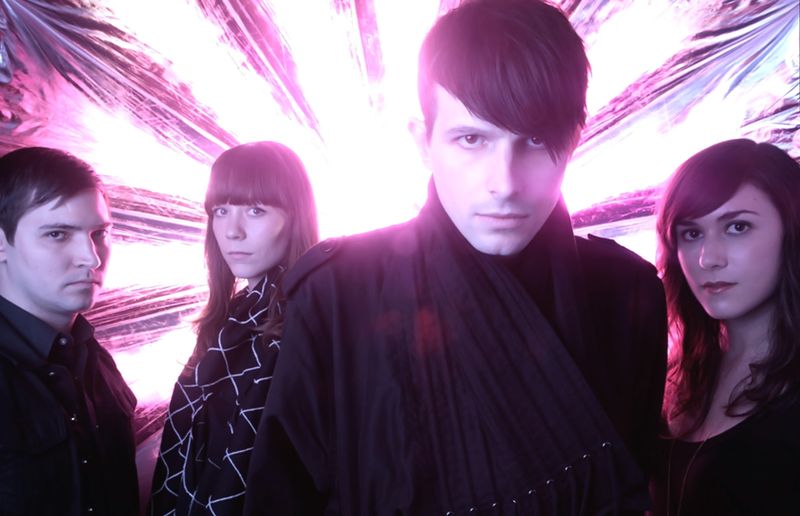Cold Cave Live in Hong Kong @ Saffron on the Peak – 9pm, 18 May 2013
Wesley Eisold, the man behind Philadelphia’s Cold Cave, is the former frontman for hardcore bands like Some Girls, American Nightmare, and Give Up the Ghost. He was also involved in a plagiarism controversy with Pete Wentz and receives a songwriting credit on a Fall Out Boy album. Not exactly the first person you’d expect to be making beautiful, experimental synthpop.
Cold Cave weaves incomprehensibly distorted vocals with bits of synthetic feedback. But songs like “Love Comes Close”, “Life Magazine” and “Confetti” also come bearing serious hooks. That mixture of postpunk unease and fluid bleep would’ve made Cold Cave fit right in on the early-80s Factory Records roster alongside Section 25 or the Durutti Column.
As with their ancestors, for Cold Cave the synthesizer is as much about mayhem as it is melody. It is a means of conveying, via dissonance, ideas about disturbance and decay as effectively as the harshest guitar rock. Cold Cave strive for balance, between the ugly and the beautiful, between rupture and rapture. The songs on Cold Cave’s albums have an immediacy that belies their sometimes thought-provoking titles like “The Laurels of Erotomania” and “The Trees Grew Emotions And Died”. In this way they look to mark that transitional moment when synthesizer music went from a subversive device for sound collagists to a serious commercial force. They are cerebral and savage, yet sweet and seductive.
And their mainman Wesley Eisold is an absolute new young god of nihilism and despair. His interviews include quotes such as, “I couldn’t understand why people were wearing watches, because they seemed like hourglasses of death, keeping track of how much time was running out”. He talks of his “absolute fixation with nostalgia and the idea of people and loves that never happened, so much that I can’t function properly with the people in my actual life”. And in two pithy sentences – “I dread clubs but I love the music they play in them,” and “I find it all so disheartening, what we hope to find when we leave our homes,” – he strives to capture Cold Cave’s aesthetic: the Morrissey of “How Soon Is Now” wailing over Nitzer Ebb beats.
According to Eisold, if anything, their music reflects what it feels like to live in the present. Eisold, whose baritone is as rich and resonating as that of Phil Oakey, Nick Cave or Iggy Pop, says “Of course we love the lineage of the genre, early experiments with machines to convey human emotion; the marriage between pop and industrial music. At the time it was documenting the early stages of a new world, and we are recording what it feels like to be alive in that world.”
When asked whether there is a set of guiding principles at work here, a Cold Cave aesthetic that runs from the artwork to the music, he answers: “We spend a lot of thought choosing what we do. The artwork is as imperative as the music. It is the only imagery attached to the recording. We judge books by covers everyday and it is my hope to have the sleeves represent the emotion, or lack of, in the music.”
9pm, 18 May 2013

